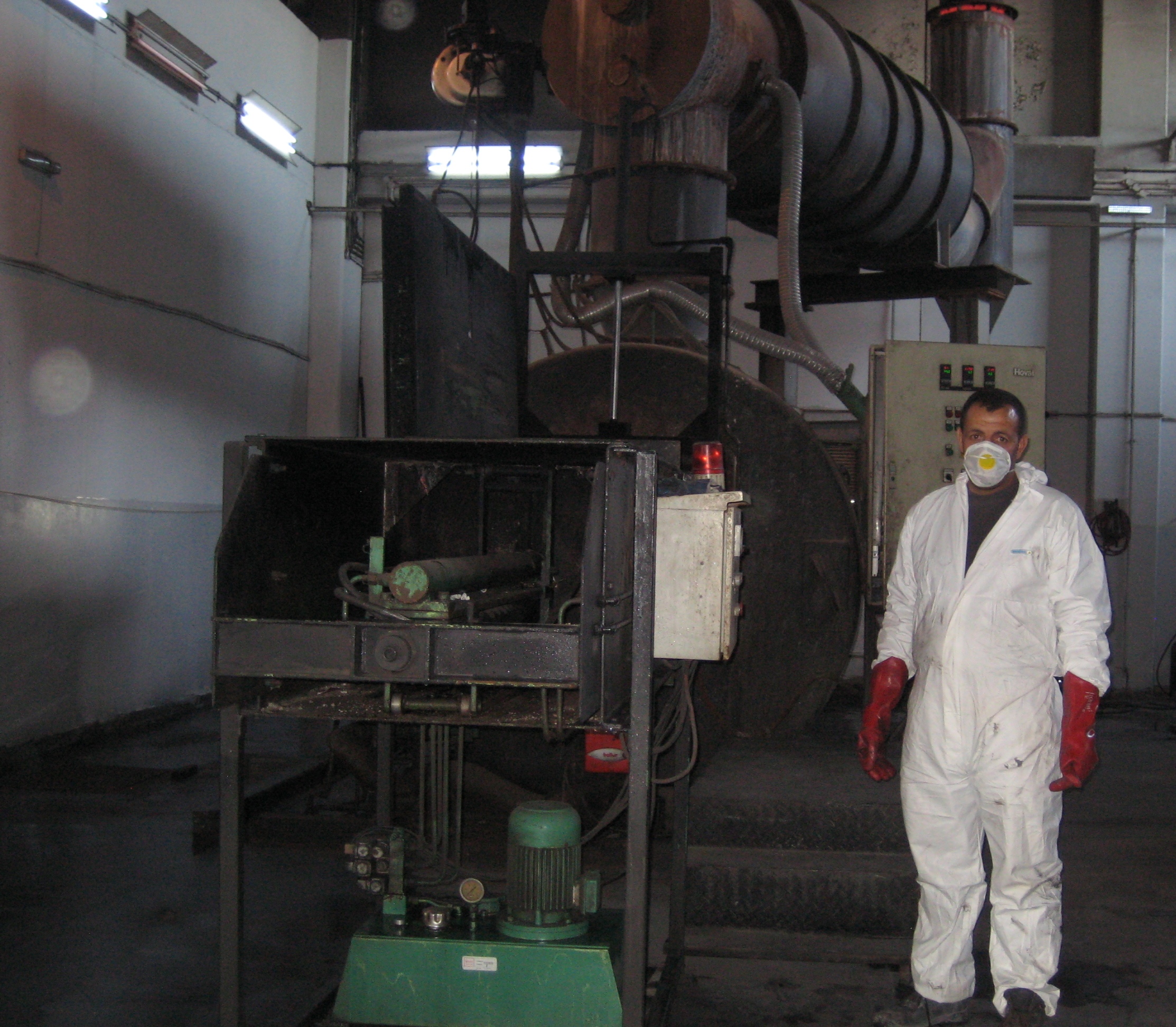
An ICMA CityLinks™ project in Jordan that ended seven years ago laid the groundwork for remarkable improvements in medical waste management that continue today. In 2003-2005, with funding from the U.S. Agency for International Development (USAID), ICMA facilitated a partnership between East Carolina University (ECU), the Jordan University of Science and Technology (JUST), and the Jordanian Ministry of Health (MoH).
This partnership was designed to develop a model for improving medical waste management in Jordan’s northern region that other regions in the country could easily follow. It involved training in the handling and overall management of medical waste, procurement of new collection vehicles and storage bins, implementation of a centralized collection and disposal system that allowed individual hospitals to discontinue the use of their incinerators and other disposal mechanisms, and regulatory review and discussions.
Jordan is one of the leading countries in medical expertise in the Middle East, and consequently generates a substantial amount of medical waste. Without proper treatment, it is possible for the waste to spread diseases and contaminate Jordan’s limited water supply. Before the partnership was formed, there was a lack of appropriate equipment, products, and consistent management policies and practices in Jordanian hospitals, as well as a lack of awareness of MoH regulations.
Management policies did not exist or were unknown by nurses, housekeepers, and other staff in many hospitals, and the institutions that did have formal policies failed to widely disseminate them. This lack of awareness resulted in the inability of hospital staff to effectively separate medical and domestic waste, properly dispose of sharp objects, and correctly respond to hazardous spills. Other problems of concern included inadequate space to store waste, and inefficient incinerators.

Medical waste trucks, like this one pictured above, collect trash from the local hospitals.
To mitigate these problems, USAID chose the ICMA CityLinks program to implement beneficial waste management practices and to share the U.S. experience, expertise, and assistance with Jordan. ICMA chose ECU for the partnership, because it was one of the few universities that incinerated its medical waste safely partnered closely with a nearby teaching hospital.
With help from ICMA and ECU, JUST began collecting waste from public hospitals on a fee-for-service basis. USAID donated two medical waste transport vehicles and several waste bins, while ECU and ICMA provided technical assistance to support the effort. ICMA and ECU also led medical waste management workshops to teach hospital administrators, supervisors of doctors and nurses, housekeeping staff, and incinerator operators how to use incinerators correctly.
Finally, the team improved the incinerators to meet MoH regulatory standards to adequately burn medical waste. As the project ended, the partnership received a commitment from the Swiss government to financially support the upgrading of the JUST Swiss-made incinerators.
Over the course of two years, the partnership created policies and procedures in hospitals to ensure:
- Efficient and safe collection and transportation of medical waste from hospitals to the JUST incinerators
- Appropriate separation of medical and regular solid waste
- Limited or no exposure to medical waste by doctors, nurses, and patients
- Development of a strategy for private-sector involvement in medical waste management throughout Jordan
- Increased hospital staff capacity to manage and handle medical waste.
The project was so successful that USAID awarded ICMA a follow-on project to continue the work and expand its scope to address other sources of hazardous waste. The number of hospitals that agreed to use the incineration services and manage their waste safely grew steadily from 3 to 21 by the end of 2005. Now, seven years later, 109 hospitals, medical clinics, and other medically related businesses are disposing their waste safely with JUST. JUST incinerates 3 tons per day and burned more than 467 tons, using safety measures, in 2012. In addition, the university now manages about 61 percent of all medical waste in Jordan.
To learn more about ICMA’s previous work in Jordan, visit our Jordan webpage. Explore ICMA’s international programs by visiting the ICMA International website, the International Development topic area in the Knowledge Network, and the “International Dispatches” blog and “Notes from CityLinks” blog,which includes a post about this Jordan CityLinks program, or e-mail international@icma.org.
New, Reduced Membership Dues
A new, reduced dues rate is available for CAOs/ACAOs, along with additional discounts for those in smaller communities, has been implemented. Learn more and be sure to join or renew today!
